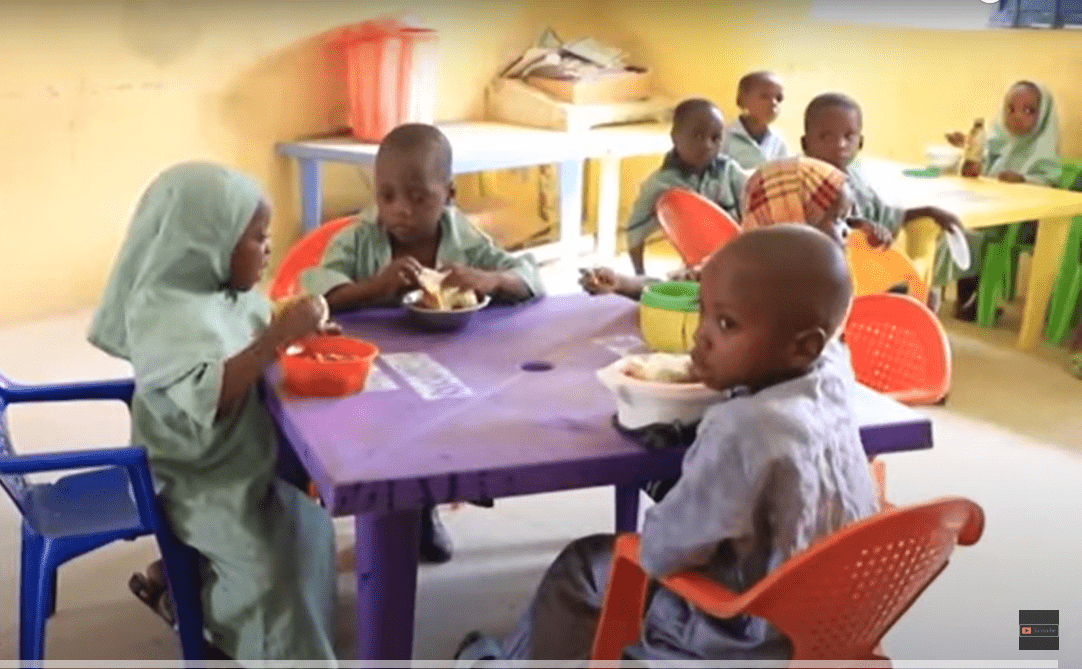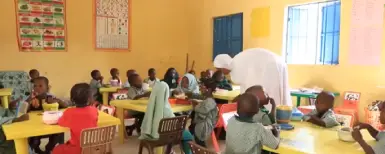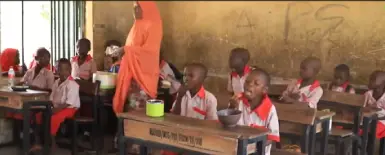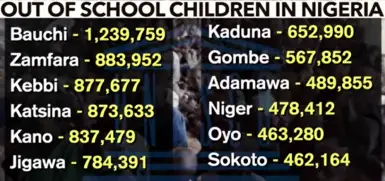The federal government is targeting 10 million children for school feeding and has established a commission for out-of-school children.
To promote school attendance, the government introduced the school meal program. According to YETUNDE ADENIJI Yetunde, the president aids the National School Feeding programme, said the school feeding programme is an essential part of everyday children and we are here today with development Partners, the private sector, and stakeholders to sit down and look for innovative ways and sees how we can project the programme.
YETUNDE maintains that the President said we were going to feed 10 million children and we are working with the data that we already have; the development Partners have been instrumental in gathering information, and we also have information that we’re working well with what we have.
the Department of State Services’ director general, Yusuf Bichi represented by the deputy director of the Department of State Service and Critical Programs Agency and Department NNEKA BUSH said that developmental issues and security had a symbiotic relationship where improved, development and security concerns and challenges are highly minimized.
We understand that there is a symbiotic relationship between security and development difficulties, whereby as development improves, the problems resulting from security challenges and concerns are much reduced.
Nneka maintain that the service under the leadership of Yusuf Magaji Bichi is fully committed to supporting such laudable projects like the Homegrown School feeding programme.
ALSO : UNICEF REBUILDING THE NORTHEAST EDUCATION PROCESS AND STEM EDUCATION
Adeniji said the government is committed to a public private partnership PPP to address the funding gaps of the national school feeding program. she disclosed that the government is looking at ensuring that children and Almajiri are off the streets and in the classrooms.
To have a sustainable, cost-effective, and efficient School feeding program, it means we should be able to leverage all those interventions and schemes that have been in place that have been assessed and evaluated and are working, no matter how small, we need to share knowledge and experiences of those initiatives that are already working.
As the head of education at Save the Children International, ZULFIQAR ALT disclosed that one of the key aspects is that he has been here in Nigeria for the last six years , that he traveled across more than 12 States, and he has seen so many children in the streets begging, Hawking and also working on the farm.
ZULFIQAR maintains that there are more than 15 million children in the country who are indulging in child labor, so we have to bring hope to those children, to make sure that they are in school, they learn, and then their literacy and bring Many skills to be up to the mark of in the country and then also in the region.
In school feeding programs, one of the objectives is to be able to end malnutrition to prevent hunger, these are key components or principles of school feeding programs and providing meals to children, because when children have not eaten, they can’t concentrate, and when they can’t concentrate, they can’t do well in school.
Other stakeholders including the World Bank, Save the Children and UNICEF believe that achieving the Mandate of the school feeding programme is a collective responsibility of both the government and the public sector
FEDERAL GOVERNMENT INAUGURATES COMMISSION FOR OUT-OF-SCHOOL CHILDREN
A fundamental human right, but in Nigeria, where more than 9.5 million children, mostly from Almajiri remain out of school, then that right is not exactly exercised. according to the United Nations Children’s Fund UNICEF Nigeria accounts for 15% of out-of-school children globally, of Nigeria’s 36 States the northern states are more affected top on the list is Bauchi state with over 1 million followed by Zamfara and Kebbi states with over 800,000.
It is to fix this problem that the Tinubu government has now inaugurated the National Commission for Almajiri and out-of-school children’s education under the program, the federal government hopes to reach 5 million Almajiris and out-of-school children yearly.
young boys and girls that show us the danger that we have to address very quickly, so time is not on our side.
the executive secretary outlines the targets set for the commission.
According to Dr. SHA’ABAN SHARADA the executive secretary of the National Commission for Almajiri and out-of-school children education, maintains that with the opening of this headquarters, we stand as a symbol of Hope and opportunity for Millions who have been denied their rightful access to education, Sharada said he would like to pleas to the honorable Minister, that President Tinubu renew hope agenda for returning over 10 million out of school children back to school by 2027, is a challenge we not only accept but one we Embrace with do get determination.

with one out of three children out of school, the consensus here from the World Bank to UNESCO and other development Partners is that the federal government should adequately fund the commission to reach out to more out-of-school children across the country.
A representative from the World Bank disclosed that appropriate text reflecting the large learning crisis, what can we do, we are very proud the World Bank is very proud to have supported the best program which closed last year, supporting 17 Focus states in the north, and as a result of that we supported 5 million almajiri kids, the federal government the state government and the developmental Partners please put in more money.
The minister of education, prof. TAHIR MAMMAN says we are about delivering the Mandate of the president on out of school, we all know this has been a big problem over the years, the problem has been talked about, and now it is about time to solve the problem.
in the spirit of leaving no one behind, the common mantra today here is to leave no Nigerian child behind on the streets.
advancing on from the talk to the work, it is expected that more than 13.5 million Nigerian children who are out of school will return to the classroom in the coming months and years.










1 thought on “The Federal Government Has Established A Commission For Out Of School Children And Is Targeting 10 Million Children For School Feeding”